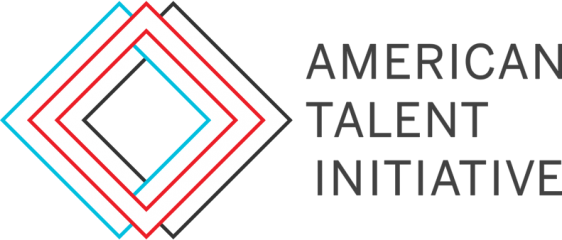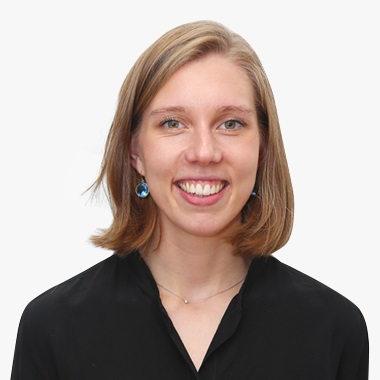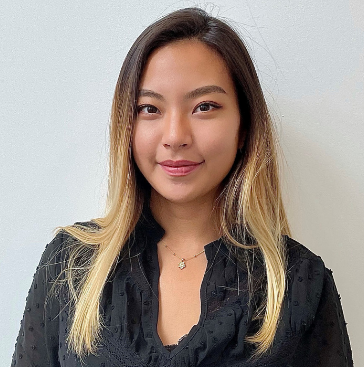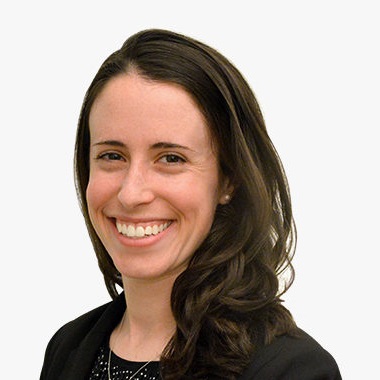Provocative, Productive, and Collaborative: The 2021 Academic Equity Summer Institute
Event Overview and Key Takeaways
Elizabeth Banes, Sunny Hong, Emily Schwartz
July 12, 2021
This post originally appeared on the Ithaka S+R blog.
Reading Time: 6 minutes

From June 21-23, 150 representatives from 28 colleges and universities participated in the 2021 Virtual Summer Institute on Equity in the Academic Experience, jointly hosted by Georgetown University, the University of Texas at Austin, and Xavier University of Louisiana, in collaboration with the American Talent Initiative (ATI).
We gratefully acknowledge the many individuals who devoted their time, energy, and expertise to the 2021 summer institute and the insights shared below, including Randall Bass, Heidi Elmendorf, Mark Joy, Susannah McGowan, and Brittany Toscano Gore of Georgetown University, Katie Brock and Ulili Emore of the University of Texas at Austin, and Nathaniel Holmes and Richard Peters of Xavier University of Louisiana. The ongoing work of the ATI academic equity community of practice would not be possible without them.
Over the course of these three days, representatives from the above colleges and universities worked in teams to advance institution-specific, equity-related projects. Practitioners across colleges collaborated to share best practices and tackle some of the most pressing questions facing our nation’s campuses today.
This summer institute built on the last few years of academic equity-focused work amongst ATI members. In June 2019, senior leaders at Georgetown and UT-Austin co-hosted the inaugural summer institute, attended by teams from 18 ATI member institutions. Since that institute, ATI members have continually signaled the enduring importance of this work, which was made even more urgent by evolving conversations on racial equity and the pandemic’s disparate impact on vulnerable and underrepresented communities. In Fall 2020, 37 ATI members joined together to formally launch a community of practice (CoP) focused on academic equity. Since the launch, institutions have met regularly to discuss topics ranging from using data to advance academic equity to preparing for the Fall 2021 semester. (For more information on ATI’s Academic Equity CoP see this link.)
The 2021 summer institute represented the culmination of the CoP’s work over the past academic year. In addition to ATI members, teams from several HBCUs and minority-serving institutions (MSIs), institutions with a track record of advancing racial equity in college attainment, participated in the event, expanding the perspectives and practices shared. Speakers also included representatives from community colleges, non-profit organizations, high schools, and more. For a full list of attending institutions, please see the appendix.
The institute opened with a powerful provocation from Dr. Isis Artze-Vega, vice president for academic affairs at Valencia College, in which she laid out her five hopes for participants that served as the foundation for ensuing conversations:
- Bring the same spirit of urgency, of possibility, and of care to your equity work with which you responded to the pandemic;
- Aim for depth and concreteness in your equity problem, challenge, and opportunity;
- Engage in this work in genuine partnership with faculty;
- Approach your equity efforts with humility and curiosity, and;
- Lean into identity- and race-consciousness.
In the sections that follow, we recap the full agenda for the event, along with some key takeaways.
Agenda overview
The summer institute consisted of four types of sessions: provocations (where the whole institute gathered to spur conversations), panels (consisting of a moderated panel of external experts and participating teams focusing on the Summer Institute’s key themes for deeper exploration), office hours (small group consultations with experts), and team meetings (reserved time for participating teams to debrief with their institutional colleagues and work on a chosen problem). Over the course of the three-day institute, sessions were organized around six foundational themes: (1) Data, (2) Systems Thinking, (3) Curricular Change, (4) Shared Equity Work, (5) Post Pandemic Equity, and (6) Building Networks.
Following Dr. Artze-Vega’s provocation, the first day focused on the Data and Systems Thinking themes. The Data theme featured panels on engaging students as co-researchers, ethical and inclusive approaches to using data to close equity gaps, and possibilities for new data practices to address equity. On the topic of Systems Thinking, panels discussed leveraging institutional identity and mission to encourage the cultural shifts necessary for change, funding trends that support systems level efforts, and effective institutional strategies that address cost, access, and quality simultaneously. When not in panels or full-group provocations, institutional teams met in team meetings and office hours.
The second day began with a focus on Curricular Change, with topics including the intersections between campus climate and the curriculum, methods for trauma-informed strategies to inform evidence-based and culturally inclusive practices and pedagogies, and recentering curricula on students, equity, and justice. A mid-day provocation was given by Dr. Kathy Powers, associate professor of political science at the University of New Mexico. Dr. Powers emphasized the importance of humility, curiosity, and spaces beyond the classroom, including the local community, when building equitable campus cultures. Following the provocation, participants moved onto the theme of Shared Equity Work, with panels exploring methods to make equity leadership everyone’s work, connections between diverse faculty and staff to strengthen student equity and access, and ways to recognize, value, and reward faculty and staff labor in equity work appropriately to retain these important stakeholders in the institution’s ecosystems. Institutional teams again had the opportunity to meet with their teams in team time and experts, including many of the panelists, in office hours.
The last day of the institute focused on the themes of Post-Pandemic Equity and Building Networks. The timely discussions of Post-Pandemic Equity focused on strengthening co-curricular connections to the curriculum (and vice versa), fostering professional identities among students to help them discern career possibilities, and accounting for learning loss in the past year, including among high school students. Finally, the panel on Building Networks considered questions of broadening who is included in “higher education,” effective partnerships with communities and schools to address underinvestment in advising students about postsecondary opportunities, and innovation in institutional partnerships. The day concluded with a provocation by Dr. Anthony Carnevale, research professor and director of the Georgetown University Center on Education and Workforce, who provided a macro-level view of the future of post-secondary education and the larger systemic forces that make equity work difficult, pressing, and imperative. The institute’s hosts provided final remarks as the day came to a close.
Key takeaways
Throughout the three-day event, presenters and participants alike collaborated to share valuable insights into ways to further efforts to advance equity in the academic experience. Some, but certainly not all, of the key takeaways are below:
- Higher education is embedded in a wider system of educational and societal inequality. Higher education practitioners are trying to create change where the whole system is wired against equity. This work requires a coordinated, whole institutional effort comparable to the response to the pandemic.
- Campus climate is central: in the classroom, in mentoring programs, and among student peers. Intentional strategies to provide a sense of community and support pay off. And, the attention to campus climate is renewed given the events of 2020, converging with issues of systemic racism and injustice in potentially significant ways- topics that those in power had previously avoided or discussed delicately are now on the table.
- In developing plans and strategies, the intentional use of language in policies, practices, procedures is important. This should inform “opportunities for dialogue” as much as the need to provide frameworks and rubrics for shifting practices and internalizing ongoing accountabilities.
- Sustained transformative change requires that institutions incentivize DEI efforts to ensure faculty and staff are committed and invested in this important work.
- Building relationships in classrooms is not marginal, but core to advancing equity. Change requires building new connections, stepping back to pause and reflect, and engaging both data and stories. Practice redesign should recognize the full humanity, not only of students, but also of faculty and staff.
- Look inward and ask the uncomfortable questions of ourselves, our institutions, and our systems to promote justice and humanity as the end goal. Move beyond just “thinking about others” to “advocating for others.”
- Equity work means helping students to understand the purpose of education as both a “collective activity” and a place to flourish individually in knowledge and skills. Students need more coherence, value, and integration. Education needs to be less transactional and more transformative.
Conclusion
While the summer institute may be over, the need to advance equity in the academic experience has no end date. As institutions prepare to welcome students back to campus in the fall, there will be numerous challenges to confront, including those that predated the pandemic (like campus climate and inequities in access), those that arose over the last year and a half (like the increase in mental health concerns), and those that may be new this fall (like welcoming two classes, freshmen and sophomores, that are new to an in-person college experience). As institute leader Heidi Elmendorf told participants, “the tail of the pandemic is long,” and the dedication and responsiveness to equity issues throughout the pandemic is still needed as the pandemic wanes in the months and years ahead.
To that end, we are excited to continue convening summer institute participants through ATI’s Academic Equity community of practice throughout the upcoming school year and beyond. Later this summer, we plan to host a kick-off session to identify collaboratively the most pressing topics for discussion and research for the CoP in the coming year, and we look forward to publishing insights throughout the year to advance academic equity work for all.
We gratefully acknowledge Bloomberg Philanthropies, the Gray Foundation, and the Aronson Foundation for their generous support of this year’s summer institute. If you have any questions about the summer institute or ATI’s Academic Equity community of practice, please reach out to Sunny Hong at Sunny.Hong@ithaka.org. Please follow this link to access shared resources for the ATI Academic Equity community of practice.
###
Appendix: Full list of participating institutions
Claremont McKenna College
County College of Morris
Denison University
Drexel University
Duke University
Emory University
George Mason University
Georgetown University
Georgia Tech
Hampton University
Hope College
Jackson State University
James Madison University
Muhlenberg College
Rutgers University – New Brunswick
Southern Methodist University
The Ohio State University
The Pennsylvania State University
Tuskegee University
University of California, Los Angeles
University of Dayton
University of Illinois Urbana-Champaign
University of Iowa
University of Massachusetts Amherst
University of Richmond
University of Texas at Austin
Winston-Salem State University
Xavier University of Louisiana




